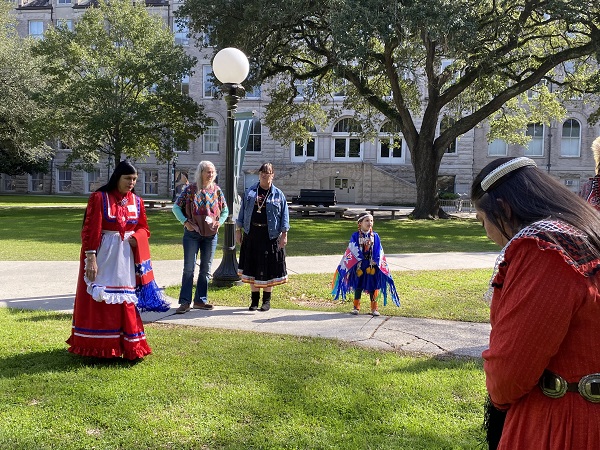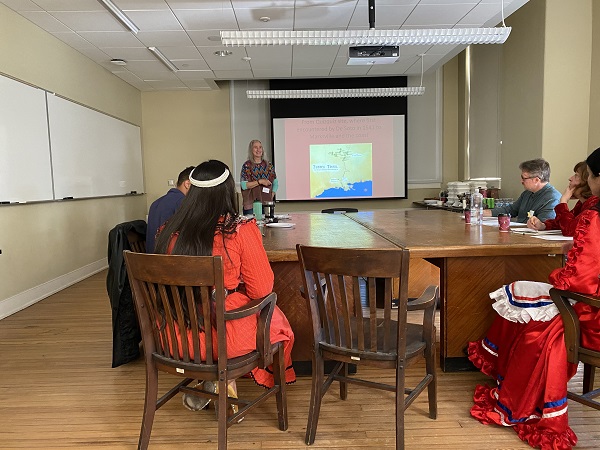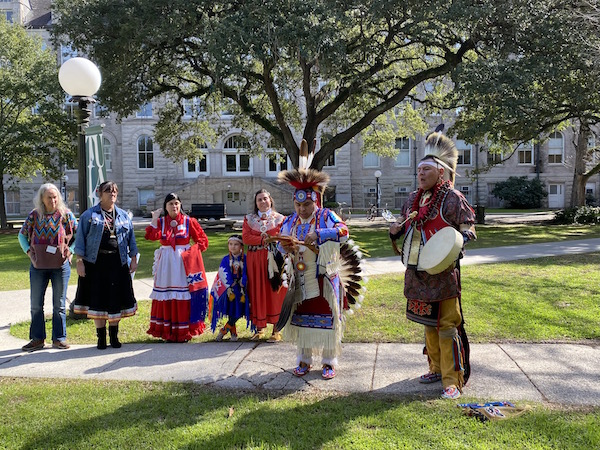Tunica-Biloxi Culture workshop launches LARC's Spring 2020 K - 16 educator series
On Saturday, January 25th, the Latin American Resource Center held its first installment of the Spring 2020 Ancient Civilizations K – 16 Series for Social Studies Educators, which is sponsored by the Middle American Research Institute, S.S. NOLA, and the Stone Center for Latin American Studies. These workshops invite educators to learn about the influences and relevance of Ancient civilizations from Central America to the Gulf South. This initial session, entitled “Tunica-Biloxi Language & Culture in the Classroom,” introduced middle to high school Social Studies educators with little or no prior knowledge to Tunica heritage and culture.

Language Instructors Donna Pierite and Elisabeth Pierite Mora of the Tunica-Biloxi Language & Culture Revitalization Program shared the history of the Tunica-Biloxi Tribe beginning in 1541 up to the 1700s, when the tribes reached the Avoyelles Prairie. Additionally, through story, song and dance they shared Tunica language and arts. Connecting this content to K – 16 classrooms, they highlighted the cultural educational initiatives of LCRP and provided participants with online resources and samples of pedagogical materials.
Professor Judith Maxwell also contributed her expertise and experience with contemporary indigenous language issues. Since 2010, Maxwell has been heading a collaborative team of Tulane students and Tunica-Biloxi tribal members and scholars working to revitalize Tunica language, which has been “sleeping” since the last native speaker, Sesotrie Youchigant, died in the 1950s. The workshop also featured members of the Seneca-Cayuga Nation and Sioux-Lakota Nation who presented on traditions from their cultures.

Through its focus on Louisiana indigenous people and culture, this first workshop of the Ancient Civilizations series has set the foundation for local educators to create deeper connections when teaching about indigenous identity across the Americas, including the Maya, the Aztec and the Inca. The next installment, a workshop entitled Understanding Maya Fare: Beyond Tamales and Cacao takes place on Friday, March 6th as part of the Annual Tulane Maya Symposium.

